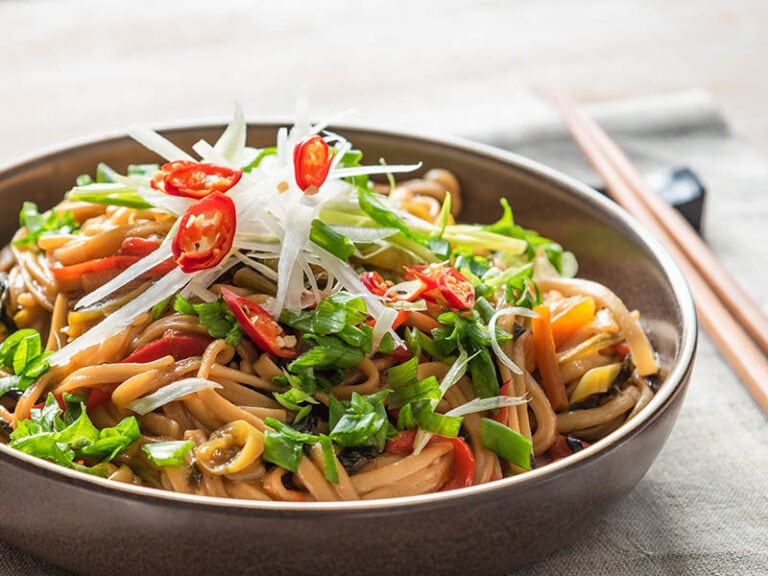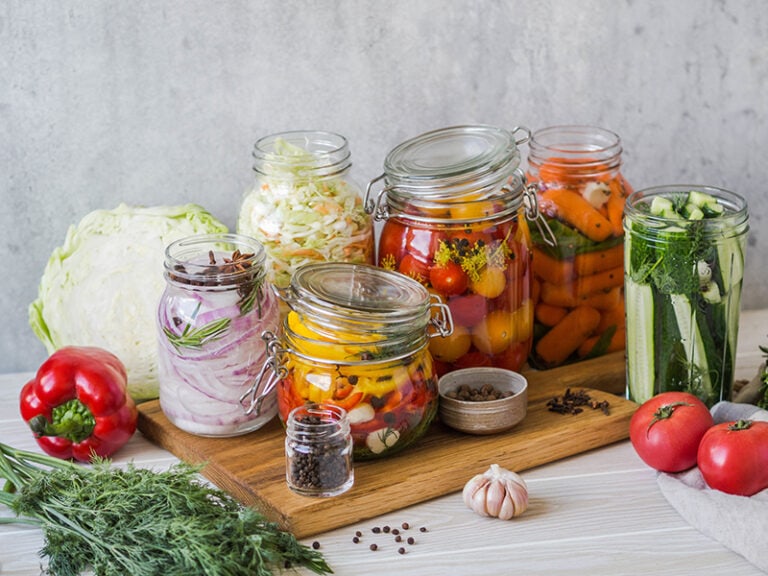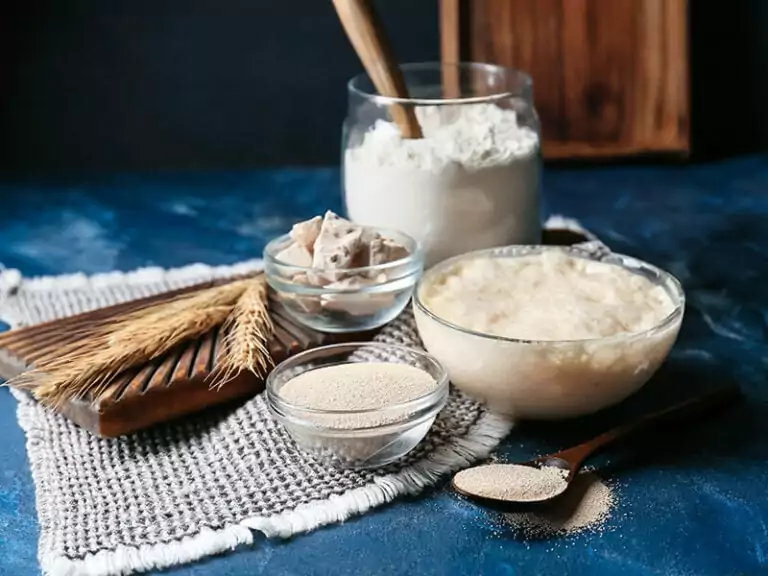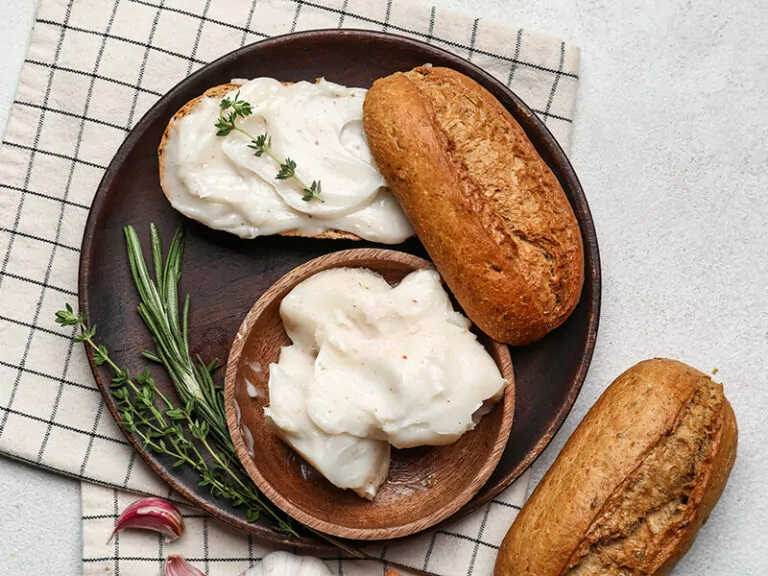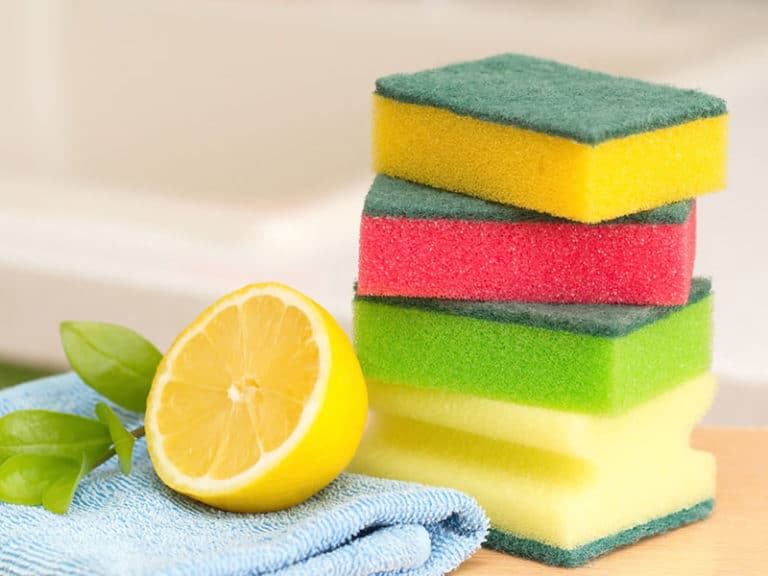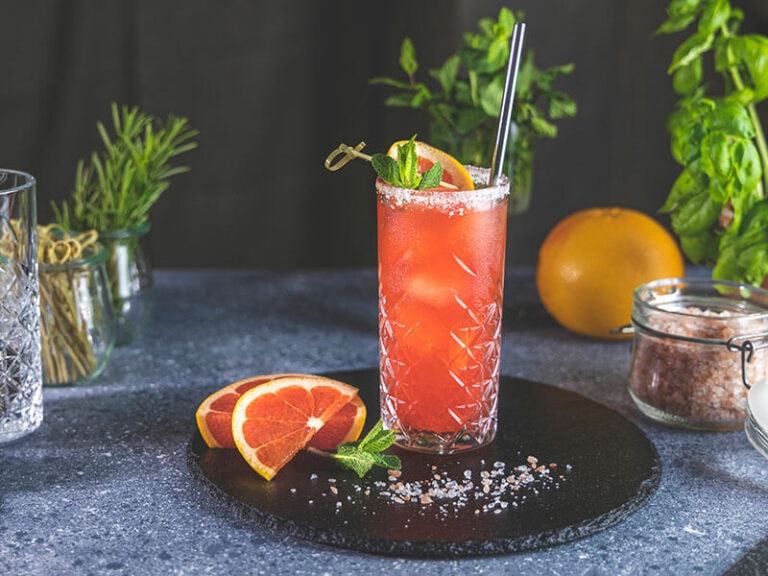People are used to the water, so they hardly ever wonder, “how long does it take for water to boil?” You may take it for granted, but how many times have you waited for the water cup to boil for your instant noodle and felt like it lasted forever?
Let’s dive into it and figure out the secret. You will soon unravel more about the science behind boiling water, know which factors affect the timing, and have tips to speed up the process safely.
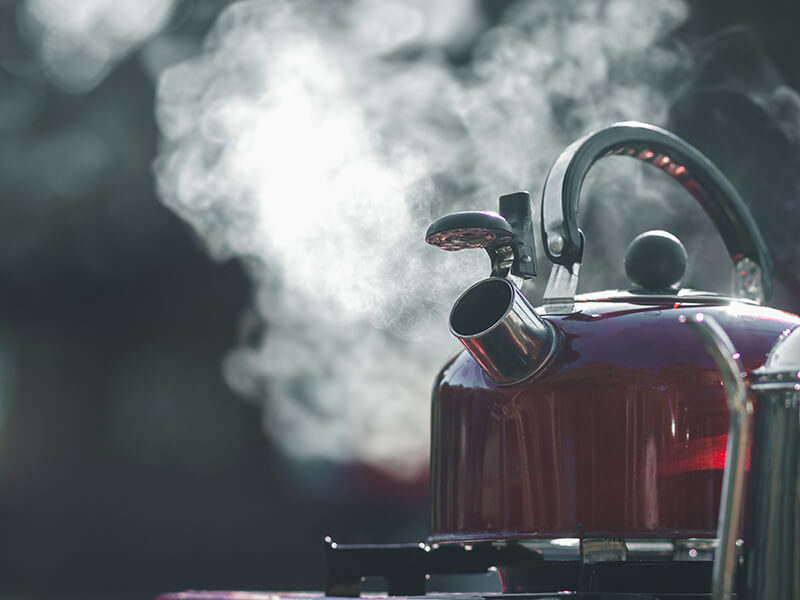
The Secret Of Water That You Should Know
Before getting your answer regarding water boiling temperature, you should understand the characteristics of water. Although water may seem familiar to everyone, it has secrets you may not know.
Characteristics Of Water
Everyone knows the chemical composition of water is H2O, which consists of two Hydrogen atoms and one Oxygen. This liquid occupies around 70% of the Earth’s surface and your own body weight.
But this is not chemistry class, so don’t freak out. Just pocket these following water features.
- Water is polar, which means the electro-negative state of Oxygen attracts free electrons helping the whole molecule move when it meets heat.
- Evaporation happens when water reaches boiling temperature.
- Water requires a lot of energy to boil (roughly 2257 kJ/kg).
- Colorless, flavorless, and odorless.
Boiling Condition
When the water temperature reaches 212 °F or 100 °C, it boils.(1)
In daily cooking, people hardly measure the cookware temperature to know if the temperature reaches the boiling point.
However, you can tell that just by observing. When you turn on the heat, the water temperature will keep rising until it starts bubbling with vapor coming off from the container.
Water boiling conditions are fairly straightforward as your only duty is to get the water to reach 212 °F, so the water can start bubbling. However, a few factors can directly affect the boiling process.
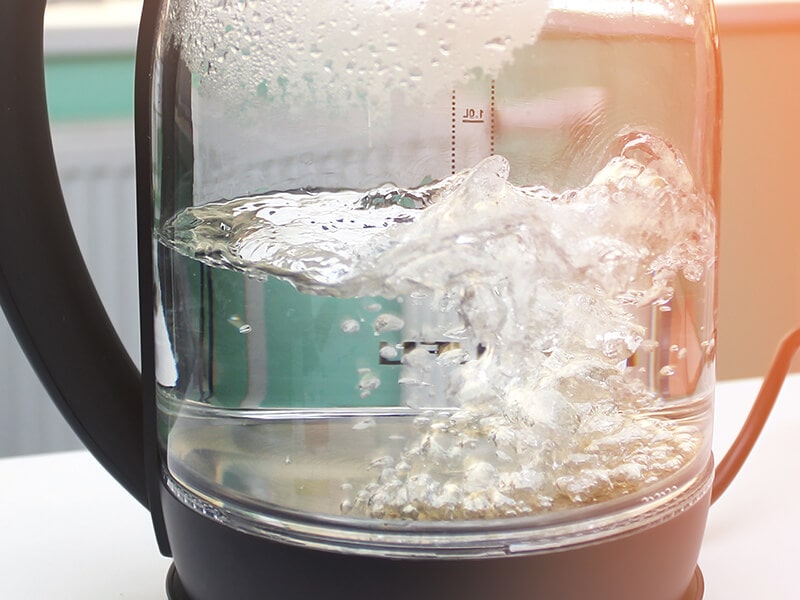
Reasons You Should Boil The Water
This seems so obvious that few people ask why they need to boil the water before drinking. Simply, this step helps to sterilize water since boiling helps eliminate bacteria and pathogens from when the high heat can disrupt the cell’s structural components.
Furthermore, it prevents diseases from the environment. Since each place has a different water source, it can be contaminated by various factors. Boiling is the easiest and most reliable way to drink water safely.
Which Elements Affect The Waiting Time For Water To Boil?
After going through the essential information, the exact answer for water boiling time depends on many external elements. There are several variables that I will outline below for you to know about the whole picture.
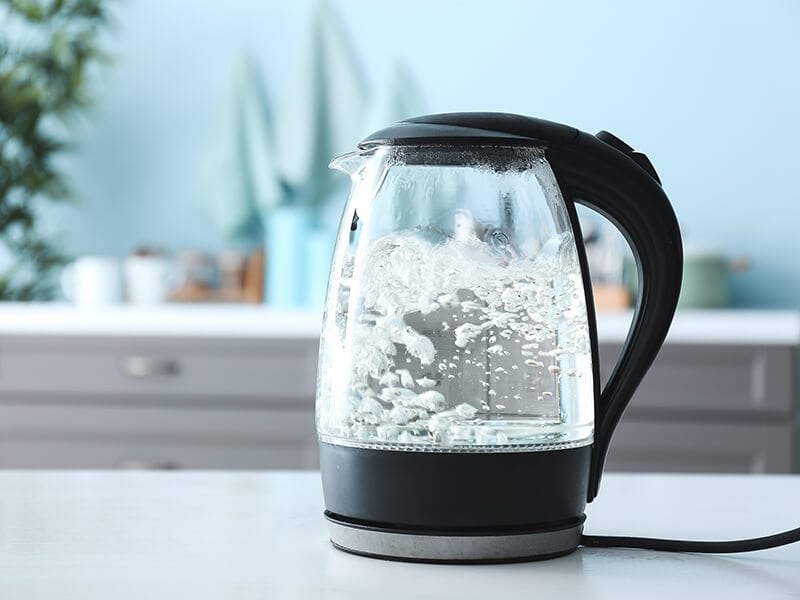
Quantity
It is obvious that a larger amount of water takes longer to boil than a smaller one. A water pot with a deep base needs more time than a small kettle with little water volume.
You can refer to the table below to figure out the time each amount of water takes to boil. Note that water temperature starts at room temperature (20°C / 68°F).
Starting Temperature
The time it takes to boil water also depends on the initial temperature of the water. There is a difference between taking water from the kitchen sink and the fridge. Since low-temperature water takes more time to reach the boiling point, your overall time will also be affected.
You can check out the following figures to determine the correct time for boiling your cold water. Note that the following statistics result from boiling around 2 water cups on a stovetop.
Altitude
The atmospheric pressure declines rapidly the higher you go. One useful trick to determine the boiling temperature is that every 500 feet higher above sea level, the boiling point decreases by 1°F.
The water boils faster when you are in a highland or mountainous area because the boiling temperature is lower. In short, the higher you go, the lower the water boiling temperature.
Listen to more academic explanations on boiling and pressure.
Heating Source
The heating source may affect the boiling time the most. Thanks to technological advancement, there are electrical devices that help you boil water faster than in the past.
People have various options to pick from with electricity, gas, and electromagnet to help boil water. Some transfer heat to the liquid faster and more effectively than others.
Electric Source
The electric stovetop is not effective at energy transferring, so it’s not a favorite for people to boil water nowadays. Before the heat reaches the water, the electric stove takes time to heat the cookware, which extends the process fully.
Alternatively, the electric kettle is a must-have item, especially for someone who usually has coffee and tea. It is way more efficient regarding boiling liquid because it’s specifically designed for that purpose.
You can easily find a kettle with an output between 1500W and 2000W in the market and a higher price for 3000W. You should check out the following figures for 500ml of water (using a metal pot for the electric stovetop).
Gas Source
The traditional choice in every household is cheap and can handle boiling water easily. The time may depend on other factors, such as the cookware you put on the stovetop, size, and material.
Still, a pot with 500ml of water at room temperature will only take a short time to reach boiling.
Other Possible Options For Boiling Water
Additionally, there are two alternative options that use other equipment to raise the temperature of the water.
Induction Cooker
When it comes to cooking on the stove, induction seems the fastest to heat up food or water because it transfers the heat directly from the device, unlike a normal pot which needs to warm up the pot first.
You can buy a single induction cooker instead of a duo to save more money.
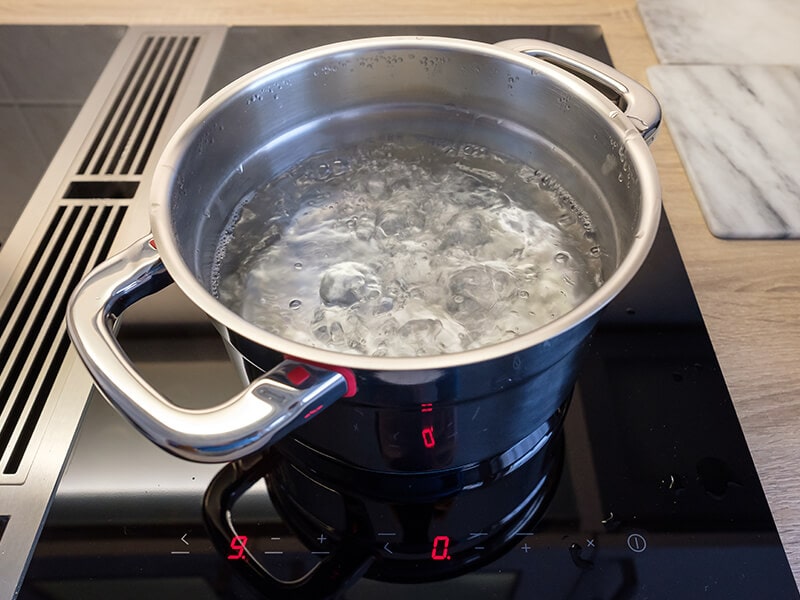
Microwave
Similarly, a microwave is one option that uses electromagnetic waves to cause friction among the water molecules. Both induction cookers and microwaves have a wide range of watts influencing the final minutes to boil water.
For the average number that is commonly seen, I can list down right here the reference table:
For microwave safe, you should consider the following rules and check it with your own appliances:
- Ensure that the bowl or cup containing water has a microwave-safe label. Don’t put any metals in the microwave.
- Use a lid to cover the water bowl.
- Don’t fill the water too full of the container so that it doesn’t spill out when boiling.
Container Material
Utensils have many kinds of material that affect cooking time. With the same volume of water, the boiling time in an iron cast kettle may have a different result than in a stainless steel one.
The thermal conductivity of metal is dependent on two elements which are lattice vibration and the flow of free electrons(2). Here, you can check out the thermal conductivity figure of each possible cookware material.
If you want to speed up the boiling process, replacing the ceramic coat pot with a hard-anodized one is a good idea. Moreover, regarding materials, remember that some are unsuitable for boiling because of low heat resistance, like plastic or glass.
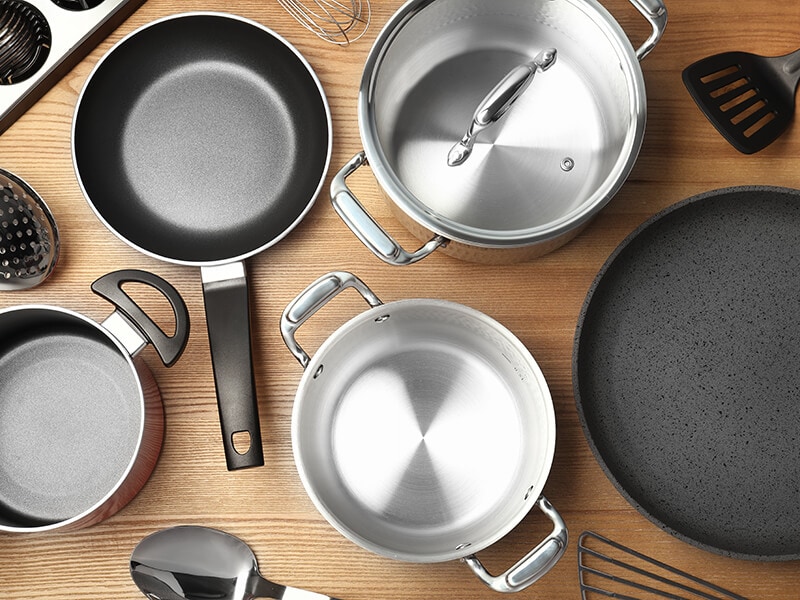
Purity Of Water
The purity level also plays a big role in determining the time of boiling water. Impurities can lower the melting point but raise the boiling point. It comes from the reason that the vapor pressure of liquid decreases, making the boiling time increase.
Furthermore, removing impurities is wise to protect your health from negative substances that may carry pathogens.
Hacks For Speeding Up The Boiling Process
In case you still want to fasten the process without changing the cookware or spending money on new electrical devices. Take note of some tips over here to experiment at home.
Using Lid
Putting a lid on your pot is the most straightforward method for cutting down the time it takes for water to boil. Therefore, no matter the utensil you use, find a lid that fits it well to trap the water vapor.
Since water molecules carry the heat when evaporation occurs, a lid will seal the heated vapor, preventing temperature loss.
Pouring Less Than 50% Of Containers
Quantity and surface area can affect the time you need to wait. Using only 50% capacity of the cookware helps to raise the contact surface between the water and cookware.
The shallow water promotes the heat to transfer more evenly. Therefore, you should consider only boiling a sufficient amount of water for your usage to save you a few valuable minutes of waiting.
Using The Pressure Cooker
The pressure cooker is a strange yet effective utensil for boiling water. Although it may take a lot of effort to set up and manage the cookware, it’s worth giving it a shot if you want a different approach to boiling water.
Since the pressure cooker acts as a sealed chamber, the heated water can’t escape through evaporation. Therefore, the utensil is ideal for maintaining a steady increase in temperature, helping the water to boil in a short time.
However, I must remind you that it’s relatively dangerous to work around a pressure cooker since you need to release its accumulated pressure after heating. Otherwise, you risk turning the utensil into a time bomb.
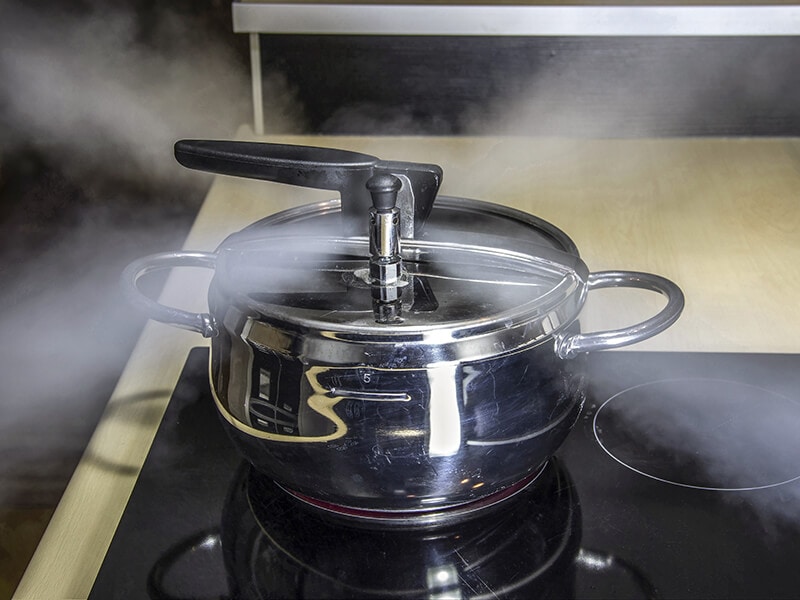
Some Pieces Of Advice You May Need On Boiling Water
Don’t forget that you need to create a clean,one-to-use amount of water by boiling it. Therefore, doing it right is the first rule to follow. Here are some important things you can miss about boiling water.
Be Sure The Container Is Clean
Keeping the container clean not only retains the water purity at the highest level but also is a good thing for your health.
A badly cleaned pot may infuse some odors and a nasty taste in the water. You should use a single cookware designated for water boiling only to avoid the excess smell of oil or remaining food.
Increase The Surface Contact Area
The center of heat gathers at the bottom of the cookware, so the more water that can meet the cookware surface, the better. Therefore, the shallow pan boils the water faster than the deep pot as they have a significant area exposed to the stove.
Remain Boiling Stage For At Least 1 Minute
One helpful piece of advice is to keep the boiling state for around 1 minute before turning off the heat source.(3) This ensures that the water has reached the boiling point and eliminates all the potentially harmful pathogens.
Filtering Water For Extra Safety
For safety reasons, you can consider buying a filter to purify the water.
Depending on your budget, there is a wide range of choices, from the portable filter you can bring to another place while traveling, an indoor fixed water purifier fixed, to a faucet purifier.
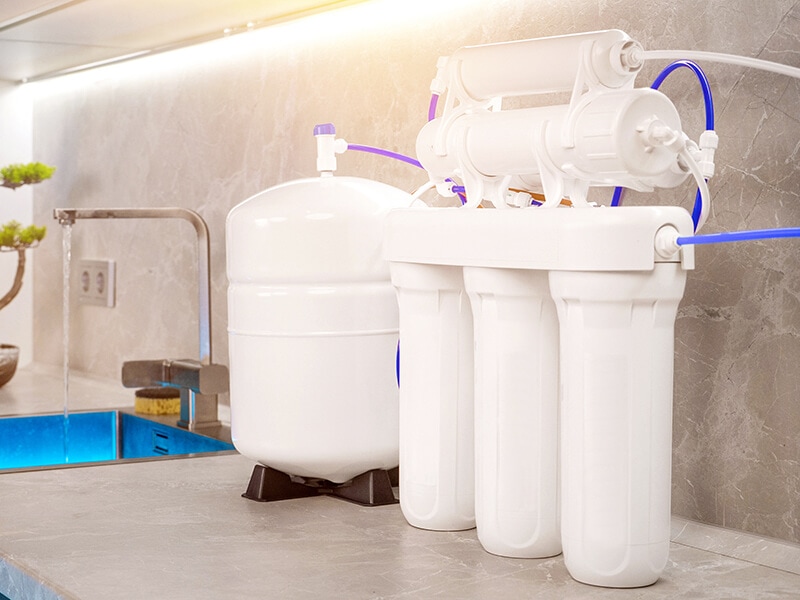
FAQs
Get to know more about some mini questions that usually pop up in the head of many home cooks.
Boiling Water Is Now A Piece Of Cake
Many factors affect the boiling time of water, namely quantity, original temperature, altitude, and container material. Besides, you can use some tips to fasten the process.
I hope you have more knowledge about the science of water. Share this with your friends, especially those who usually complain about waiting for the water to boil. Don’t forget to comment below if you have any questions.
Finally, share your experience on how to boil a perfect water pot.
References
- Libretexts (2020) Boiling, Chemistry LibreTexts. Libretexts.
- Cartagenas, I. (2022) Physics explanation of thermal conductivity of metals, Thermtest Inc.
- Boil water advisory (2021) Centers for Disease Control and Prevention. Centers for Disease Control and Prevention.

